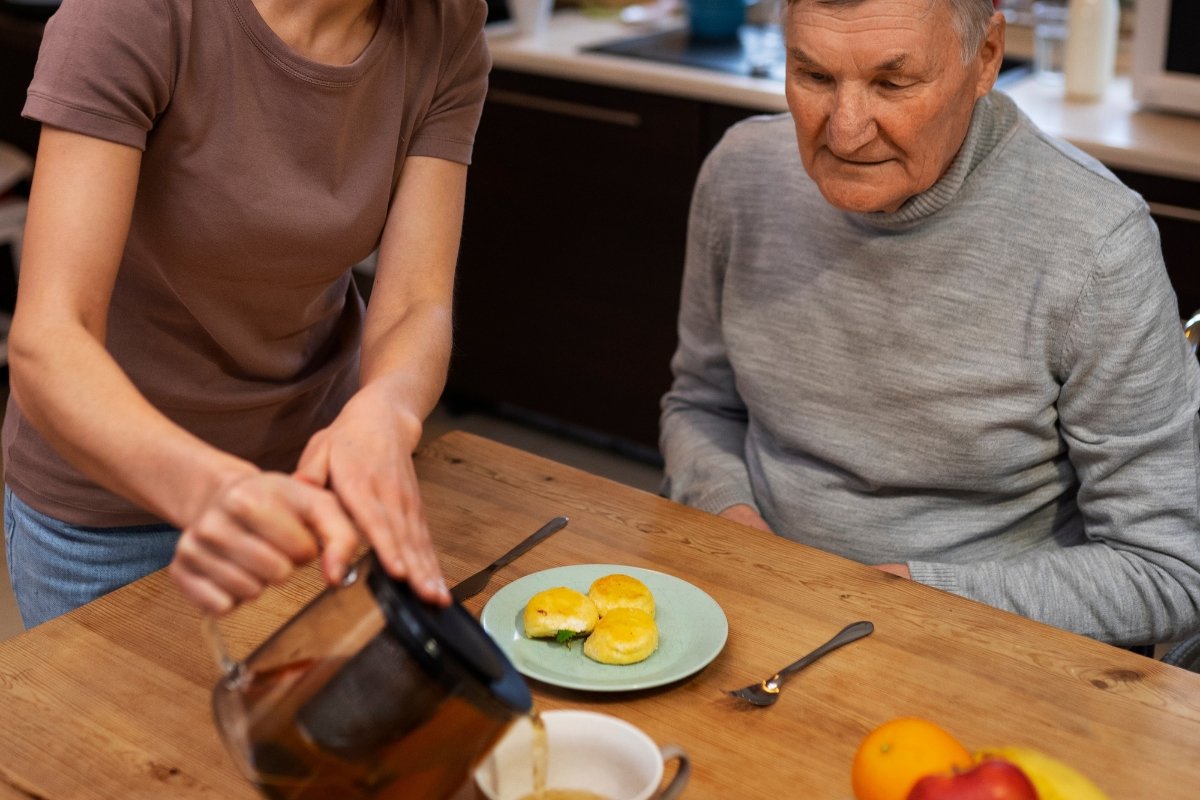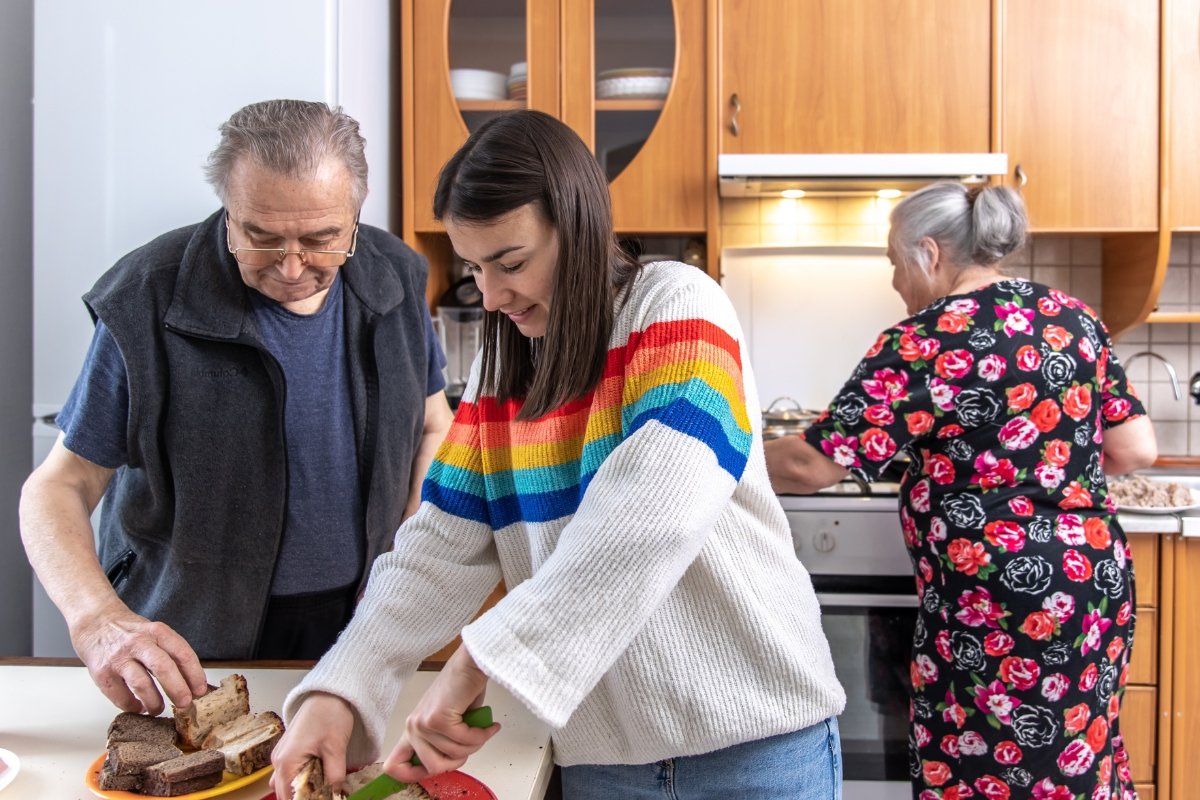Supporting Family Caregivers: Essential Resources and Tips for Success
Caring for a loved one is a rewarding but often challenging journey. Family caregivers juggle multiple responsibilities, from managing medications to emotional support, usually while balancing their personal and professional lives. Thankfully, there are resources for family caregivers and actionable caregiving tips to ease this burden and ensure success. This post will explore the top resources and support systems designed to empower caregivers to thrive.
Understanding the Challenges of Family Caregiving
Family caregivers face a wide range of challenges, including:
- Physical and emotional fatigue
- Balancing caregiving with work or other commitments
- Financial strain from caregiving expenses
- Feelings of isolation and lack of support
Recognizing these challenges is the first step toward seeking support for family caregivers and improving the caregiving experience.
Top Resources for Family Caregivers
- Local Home Care Services
Partnering with professional caregiving services like Aloha Senior Home Care can provide much-needed relief. Whether it’s short-term respite care or long-term support, these services allow family caregivers to take a break while ensuring their loved ones are in safe hands. - Support Groups
Joining caregiver support groups, both online and in person, can be incredibly beneficial. Websites like the Family Caregiver Alliance and local community centers often host forums where caregivers can share experiences and gain emotional support. - Caregiver Training Programs
Learning caregiving techniques through online courses or workshops can improve confidence. Organizations like the AARP offer free caregiving resources and educational materials tailored for family caregivers. - Financial Assistance Programs
Many caregivers are unaware of government programs, such as Medicaid waivers or the Veterans Affairs Aid and Attendance benefit, which can help cover the cost of caregiving. Check your state’s resources to see what financial assistance may be available. - Technology for Caregivers
Apps like CareZone and Lotsa Helping Hands streamline caregiving tasks by organizing schedules, medication reminders, and to-do lists in one place. These tools reduce the stress of managing caregiving responsibilities.

Practical Caregiving Tips for Success
Caring for a loved one can be both fulfilling and demanding, and knowing how to manage the challenges can make the journey smoother for everyone involved. Below are practical caregiving tips to help you navigate this role effectively while maintaining your own well-being.
1. Set Boundaries
One of the first steps to successful caregiving is recognizing your limits. Caregivers often feel obligated to handle everything independently, leading to burnout. Instead, learn to:
- Identify tasks that are manageable for you and those you might delegate.
- Communicate your boundaries with family members and loved ones clearly and respectfully.
- Say no when necessary. It’s okay to decline additional responsibilities if they compromise your physical or mental health.
For example, if a loved one requires round-the-clock care, it might be time to consider respite care options or professional assistance, such as Aloha Senior Home Care.
2. Prioritize Self-Care
Caregivers often put their loved ones’ needs first, neglecting their own health and well-being. However, taking care of yourself is essential to providing effective care. Here are some ways to practice self-care:
- Physical Health: Stay active with regular exercise, eat nutritious meals, and ensure you get enough sleep.
- Emotional Wellness: Incorporate relaxation techniques like meditation or yoga. Journaling can also help you process emotions.
- Social Connections: Spend time with friends or join caregiver support groups to connect with others who understand your experience.
Remember, caregiving is a marathon, not a sprint. Taking time for yourself is not selfish—it’s necessary.
3. Create a Routine
Establishing a routine for yourself and the person you care for can reduce stress and make daily tasks more manageable. A routine provides structure and predictability, which can be especially helpful for individuals with cognitive impairments like dementia. Consider the following:
- Plan a daily schedule that includes set times for meals, medication, personal care, and recreational activities.
- Incorporate flexibility. While routines are essential, adapting to unexpected changes is important.
- Use tools and apps to keep track of appointments, medications, and caregiving tasks. Apps like CareZone or Google Calendar can help streamline your schedule.
A consistent routine also allows you to carve out personal time for breaks or other obligations.
4. Involve Family and Friends
Caregiving is not a solo journey—it takes a village. Don’t hesitate to reach out for help when needed. Involving others can ease your workload and strengthen relationships. Here’s how:
- Delegate tasks: Create a caregiving calendar where family and friends can sign up for specific responsibilities, such as grocery shopping or transportation to appointments.
- Set up a support network: Regular family meetings can help everyone stay on the same page and share updates about the care recipient.
- Be specific when asking for help. Instead of saying, “I need help,” try, “Could you handle meal preparation on Tuesdays?”
Sharing the responsibilities reduces stress and allows you to focus on providing quality care.
5. Seek Professional Support
If caregiving becomes too overwhelming, professional help can be a lifeline. Services like Aloha Senior Home Care provide:
- Assistance with daily tasks, such as bathing, dressing, and meal preparation.
- Companionship to reduce feelings of loneliness for your loved one.
- Respite care options to give you a much-needed break while ensuring continuous care for your family member.
Professional caregivers are trained to handle medical and emotional needs, allowing you to focus on your relationship with your loved one rather than just their care.

How to Find Support for Family Caregivers
Finding support for family caregivers is vital to maintaining your well-being and ensuring the best possible care for your loved one. Here are actionable tips to help you connect with the right resources:
Leverage Local Resources
Many communities offer programs specifically designed to support caregivers.
- Area Agencies on Aging (AAA): These organizations provide information on services such as transportation, meal programs, and adult daycare centers.
- Senior Centers: Local senior centers often host workshops, support groups, and recreational activities for both caregivers and seniors.
- Faith-Based Organizations: Many religious groups offer volunteer caregiving services or support programs.
To find local resources, contact us or visit our website.
Engage with Online Communities
The digital age offers endless opportunities for connection and support. Online caregiver communities allow you to:
- Share experiences with people who understand your challenges.
- Access advice from other caregivers and experts.
- Participate in virtual support groups or forums.
Platforms like Facebook groups, Reddit caregiving forums, and Caregiver Action Network provide a safe space for asking questions, sharing stories, and learning from others.
Work with Home Care Experts
Professional home care services are one of the best ways to ensure quality care for your loved one while lightening your load. At Aloha Senior Home Care, we specialize in:
- Creating personalized care plans tailored to your family’s unique needs.
- Offering respite care to allow you time to recharge.
- Providing compassionate caregivers trained in assisting seniors with daily activities, medication management, and emotional support.
Our team is here to provide reliable care and peace of mind for you and your loved one.
Engagement Section
What caregiving challenges have you faced, and how did you overcome them? Share your story with us.
If you’re looking for professional caregiving services or need advice, contact Aloha Senior Home Care today. Let us help you create a care plan that fits your family’s needs.
Conclusion
Family caregiving is a noble role, but it can also be one of the most demanding. You can ensure a smoother caregiving journey by setting boundaries, prioritizing self-care, establishing routines, involving others, and leveraging professional resources. Remember, you don’t have to do this alone—plenty of resources and support for family caregivers are available to help you thrive.
Take the first step today by contacting local resources or professional care providers like Aloha Senior Home Care. You deserve the support you need to succeed as a caregiver.
Categories
- Alzheimer’s and Dementia Care (1)
- Blog (13)
- Family Caregiving Support and Resources (1)
- Healthy Aging (1)
- Home Safety & Aging in Place (1)
- In-Home Care for Seniors (1)
- In-home dementia care San Diego (1)
- Insights for family caregivers (1)
- Post-Surgical Recovery and Rehabilitation for Seniors (1)
- Senior Care & Cognitive Health (1)
- Senior Care & Well-being (1)
- Senior Care and Companion Services (1)
- senior care for diabetes (1)
- Senior Home Care Services (2)
- Senior Home Safety Tips (2)
- Senior Memory Care & Alzheimer's Support (1)
- Senior Nutrition and Meal Planning (1)
Recent Posts
- The Role of Companionship in Senior Wellness 12 April 2025
- The Role of Companionship in Enhancing Senior Well-Being 30 November 2024
- Memory Care at Home: How to Support Seniors with Cognitive Decline 24 November 2024
- The Importance of Social Connections for Seniors’ Mental Health 23 November 2024
- Supporting Family Caregivers: Essential Resources and Tips for Success 22 November 2024

